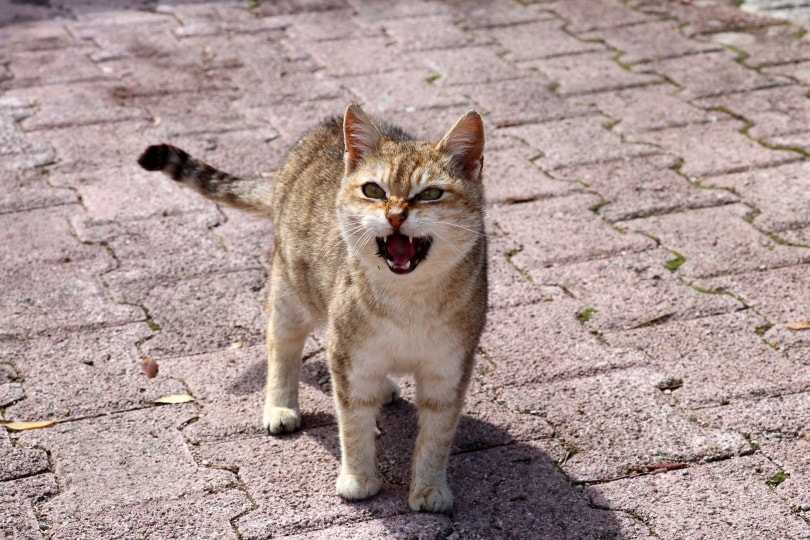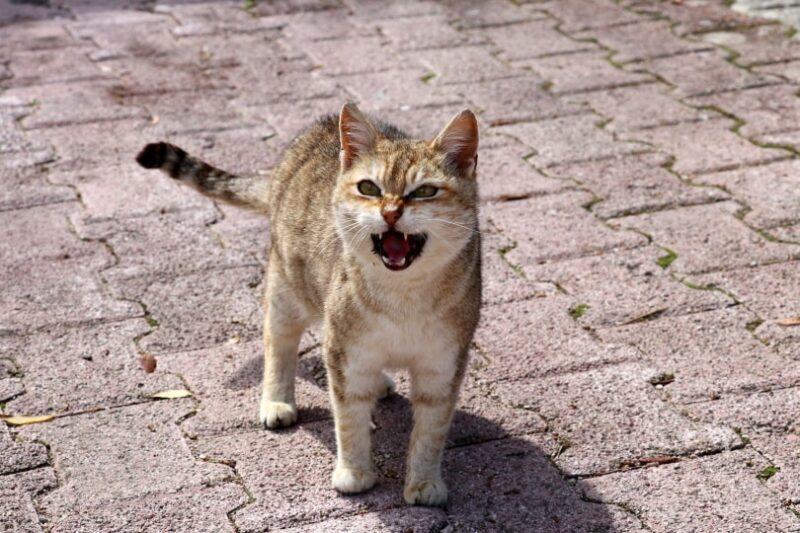Cats can be very vocal creatures! Sometimes, they’re simply letting you know they need something, or perhaps they just like to hear themselves talk. A few breeds are known for being a bit more vocal, such as Siamese cats.
If your cat starts meowing a lot suddenly, however, it could indicate a problem.1 It could be something silly, but excessive meowing and yowling could point to something more serious.

The 6 Reasons Your Cat Is Meowing A Lot Suddenly
1. Seeking Food
Cats are highly food motivated. If your cat is suddenly meowing around feeding time, it’s really just a demand to feed them. While your instinct may be to give in immediately, it’s important to avoid reinforcing this behavior. Make your cat quiet down to get food, and avoid offering treats when it meows.
Similarly, some cats learn to meow to get table food from you or a family member. By giving in to the demand, you’re creating a situation in which your cat knows to meow and yowl until it gets what it wants. Resist!
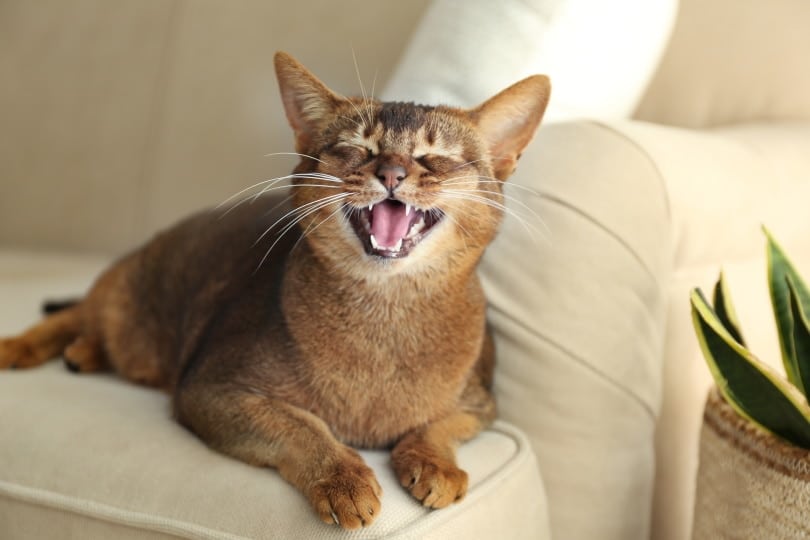
2. Seeking Attention
Cats may have a reputation as aloof and independent pets, but it really varies by breed. Some cat breeds are more social than others, and with these cats, lack of attention can prompt behaviors like excessive meowing.
Consider if your cat has a point. Have you been working a lot lately? Or maybe you just got back from a long vacation? In these cases, it’s possible that the meowing will subside once your cat readjusts to the routine. If it continues, or you spend more and more time away, consider getting another pet as a companion to your cat. If that’s not an option, interactive toys, an occasional pet sitter, and more one-on-one time with your cat can help it feel more loved and bonded.
3. Showing Illness
If the meowing comes out of nowhere, it could indicate more than a behavioral issue. Several diseases can cause symptoms like hunger, pain, or thirst, which may prompt your cat to meow to get what it needs. As kittens, this is how they tell their mother they need something so that behavior can carry over to adulthood when they’re not feeling well.
Some conditions directly cause meowing or excessive vocalizations, including an overactive thyroid and kidney disease. It’s best to schedule an exam and have your vet determine—or rule out—underlying medical conditions.
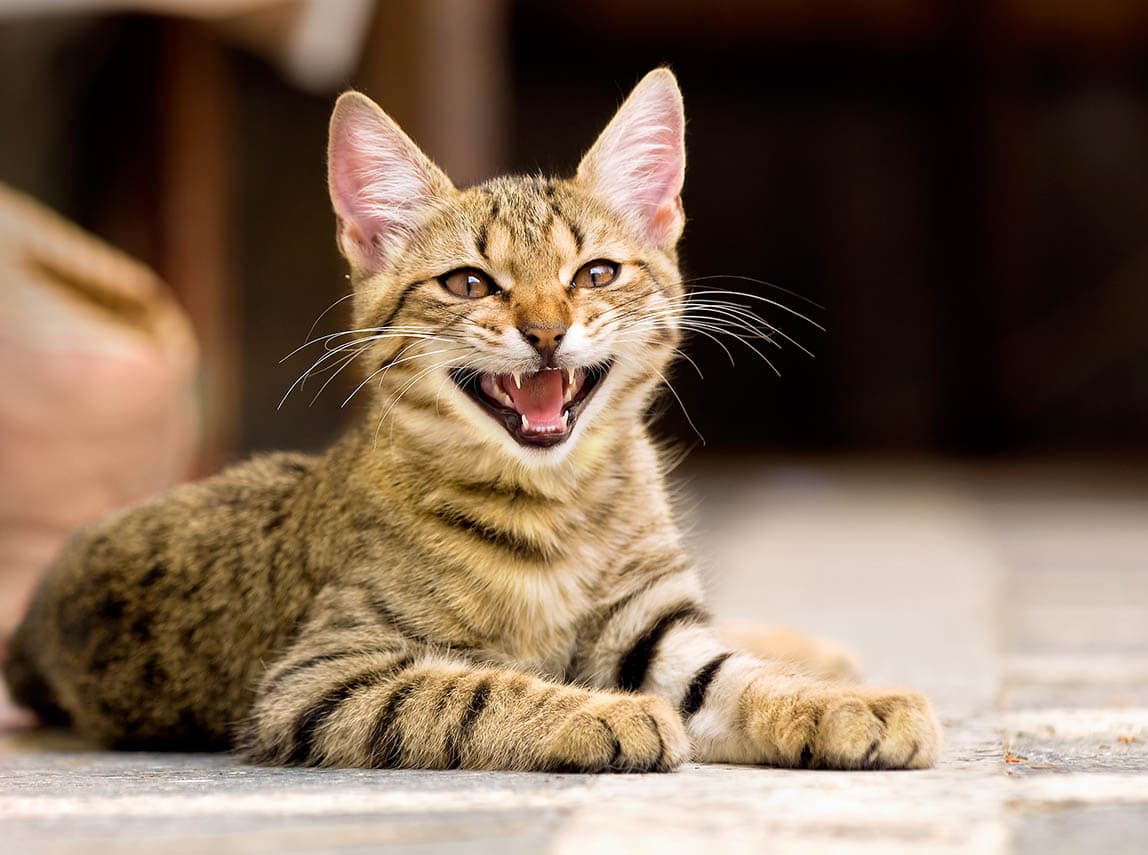
4. Expressing Stress
Cats that are stressed out will often vocalize more. The stress could be caused by any number of things, including a new pet or baby, a move to a different home, the loss of a family member, or conflict with other pets or people.
The best way to correct this issue is by identifying the source of the stress. This isn’t always easy. For example, your cat may be feeling stressed by a neighborhood stray that taunts it from the window. You may not know that’s happening, so you could misjudge the actual source of the stress. A cat behaviorist can help you identify the possible stressors and make modifications to make your cat more comfortable.
5. Aging
Like people, cats can suffer from dementia, or cognitive dysfunction, as they age. As the disease progresses, your cat may vocalize for no obvious reason. This could be caused by confusion about its surroundings, anxiety, or any number of causes.
Cats with cognitive dysfunction may experience disturbances in their sleep cycle, which can increase vocalization at night. Speak with your vet about the symptoms you’re experiencing. You may be able to curb some of this behavior with medication.
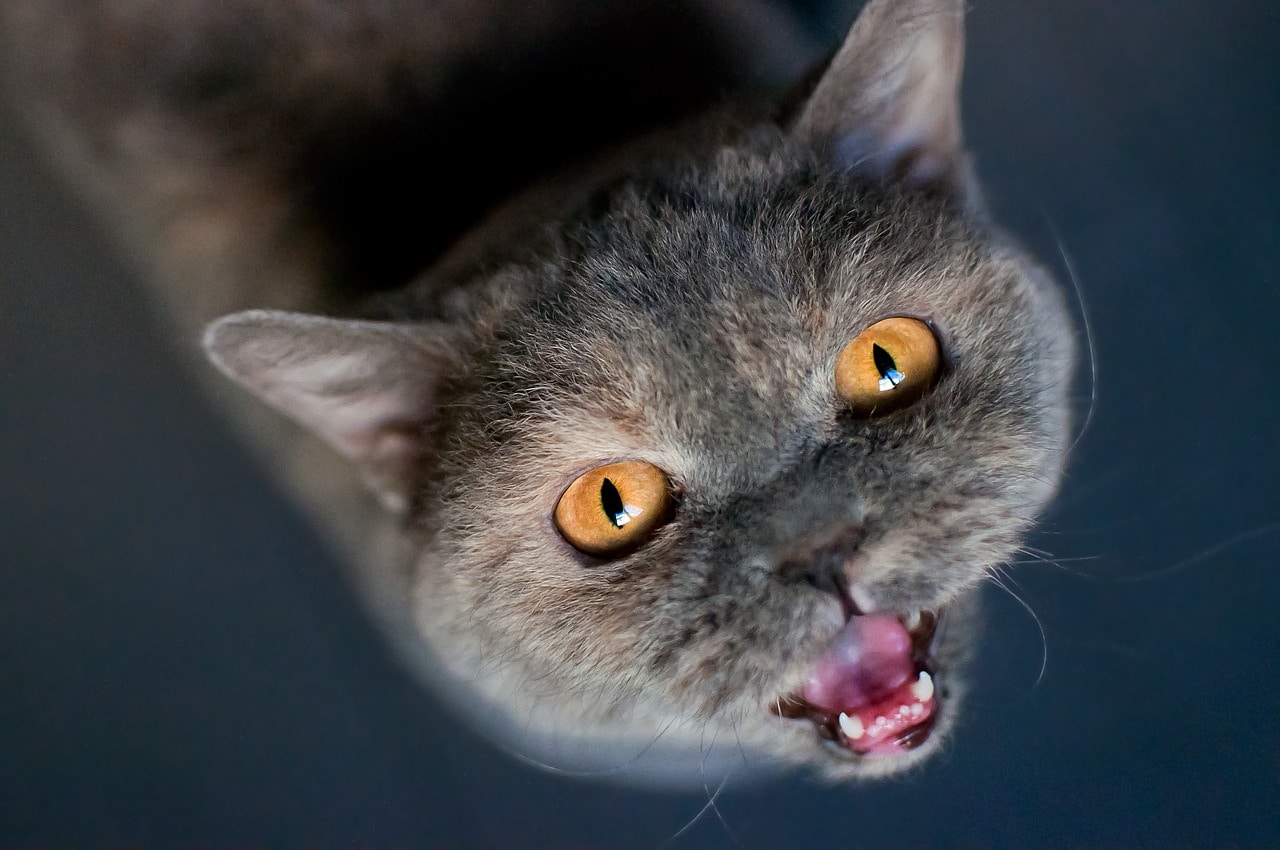
6. Mating
If your cat is intact (unspayed or unneutered), the mating period can bring a lot of noise. Females tend to become vocal during heat cycles, and males will often yowl when they smell a female in heat nearby. With multiple cats in one household, not to mention outdoor strays near your home, the meowing and yowling can drive you mad.
Spaying and neutering will not only prevent these behaviors, but it can help with other behaviors like marking or roaming in search of a mate. Spaying and neutering also prevent some reproductive cancers or infections.

Why Do Cats Meow?
Domestic cats meow as a form of communication. They don’t often meow at each other, which means that meowing is a learned behavior to address their human servants.
In the wild, cats are solitary. They have no need to communicate with each other vocally, so they mark or rub themselves on objects to establish their territory. We don’t have a strong sense of smell, so cats had to develop another way to communicate their needs.
As kittens, they meow at their mother to say they’re hungry, cold, injured, or uncomfortable in some way. Domestic cats hold onto this behavior into adulthood, while feral cats will typically outgrow it in the absence of much human interaction.
It’s possible that cats learn at an early age that meowing gets something from their owner. For example, a kitten may meow and promptly get its breakfast or dinner. Now, even as an adult, that cat knows that meowing gets results.
This can be cute (or annoying, at times), but it’s a useful tool to identify a problem. Sure, cats are manipulative and could be using meows and yowls to get what they want, but it could be for a good reason. Maybe your cat is trapped somewhere, needs water, or is struggling with some kind of pain or discomfort.
Regardless of the reason, it’s important that you don’t punish your cat for meowing. Hitting, yelling at, or spraying your cat with water won’t do much to prevent meowing, and if the meowing is caused by stress or pain, that’s only making matters worse.
Similarly, avoid giving in to your cat. Now, if your cat is trapped in a room and crying, by all means, let it out. But if your cat is meowing to get your attention or get food (barring medical issues), giving in only teaches your cat to become louder or more obnoxious until it wins. Always reward polite, quiet behavior.

Conclusion
Cats use a variety of sounds to communicate their needs, from hissing and screeching to meowing and purring. If your cat becomes excessively vocal all of a sudden, it could be a sign that something is amiss. Whenever you notice a behavioral change like this, be sure to seek the advice of your vet to rule out any medical causes.
Featured Image Credit: Piqsels

